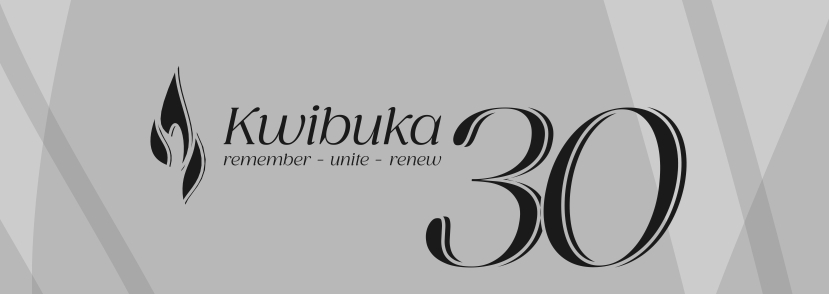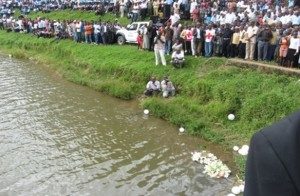
A Call to Action: Healing the Unseen Wounds of Rwanda’s Second-Generation Survivors Born from Rape as a Weapon of War
By Intare R., Second-Generation Survivor, Foundation Rwanda Ambassador
Thirty years after the 1994 Genocide against the Tutsi, the weight of that horrific time still hangs heavy on Rwanda. A lingering scar marks our collective heart – the plight of children born from that violence. Today, the world commemorates the tragedy, but the silent suffering, the unseen wounds we carry as second-generation survivors born from rape as a weapon of war, often go unnoticed.
We were born of unimaginable pain, innocent victims burdened by a past we didn’t choose. Our identities are shrouded in mystery, haunted by unknown fathers, or, worse, these same perpetrators used rape as a weapon, purposefully infecting our mothers with HIV/AIDS, leaving a legacy of suffering that extends to most of us.
All Rwandan youth have access to a range of programs designed to empower them. These programs include YouthConnect, a flagship initiative launched by the Rwandan government in partnership with the United Nations Development Program (UNDP), a platform designed to connect youth with various opportunities for their socio-economic transformation. Additionally, the Imbuto Foundation, established by First Lady, Jeannette Kagame, empowers vulnerable women and youth, many of whom were impacted by the genocide. Finally, the Rwandan government provides much-needed vocational training and employment programs, equipping Rwandan youth with valuable skills and opportunities to achieve financial independence.
However, thirty years after the genocide, challenges persist for second-generation survivors like me and our mothers.
Thankfully, organizations like Foundation Rwanda (all programs originate from the suggestions of their beneficiaries and have been run locally by an all-Rwandan team since 2007) and Survivors Fund (SURF) have become beacons of hope. They extend a lifeline to our marginalized community, offering essential holistic support – education, mental health services, and entrepreneurship – to bridge the chasm of neglect and stigma. Their innovative programs, like the first-ever trauma counseling initiative designed for both second-generation survivors born from rape and their mothers, address the unique challenges we face and help us navigate our complicated family relationships. These programs have transformed thousands of lives, but with an estimated 250,000 second-generation survivors born of rapes committed during the genocide, the need remains vast.
To fully realize Rwanda’s commitment to healing and reconciliation, I’d like to raise awareness of some of our multifaceted challenges:
- Healing the Trauma: Accessible and specialized mental health services are crucial. We need counseling, therapy, and psychosocial support to mend our fractured souls, rebuild shattered lives, and work through the trauma of our births and relationships with our mothers.
- Education and Building a Future: Education is a powerful tool to break cycles of poverty and exclusion. Targeted initiatives like scholarships, mentorship programs, and specialized educational support can help us overcome barriers to schooling.
- Empowerment Through Entrepreneurship: Programs like Foundation Rwanda’s KYBORA initiative, created by and for second-generation survivors, offer another powerful pathway. KYBORA focuses on entrepreneurship and microlending, enabling us to become self-sufficient. These sorts of support can play big roles for us as we start our own families, care for our aging mothers, and work to break the cycle of intergenerational poverty.
- Addressing Physical Health Concerns: Limited access to healthcare exacerbates trauma and PTSD. Expanding services and establishing dedicated services are crucial for our physical and emotional well-being.
- Confronting Stigma: Awareness campaigns are necessary to challenge stereotypes and promote acceptance. We need a society that fosters empathy and understanding.
- Caring for our Mothers: Many mothers in our community struggle to differentiate between symptoms of PTSD and those of perimenopause and menopause. Compounding these health challenges, limited resources for aging women in Rwanda make navigating this transition even more difficult. To address this critical gap in knowledge and resources, Foundation Rwanda and SURF have partnered with Paul Farmer’s University of Global Health Equity to launch a groundbreaking research study “Exploring the Socio-Cultural Dynamics and Health Implications of Perimenopause and Menopause in Rwandan Women Survivors of Rape as a Weapon of War.” Honoring their strength, we are committed to championing our mothers’ well-being and dignity in their middle age and end-of-life care. More support towards that approach would be highly appreciated.
- Amplifying Our Voices: We do not wish to be passive recipients of aid. We aim to be resilient agents of change with valuable voices who represent the future of Rwanda. Our perspectives could help to shape the policies and programs designed to support us, just as Foundation Rwanda and SURF have done. We are young adults now, ready to contribute to Rwanda’s bright future. Inclusivity in decision-making processes can do wonders for our nation.
The road to healing is a collective journey. By standing in solidarity with survivors and their children, Rwanda, the international community, and NGOs can help us heal from one of the world’s darkest chapters. Let us not simply commemorate this tragedy, but transform our actions into a wellspring of hope and resilience. Together, let’s ensure second-generation survivors’ voices are heard and our holistic needs met, so those of us who have endured unimaginable pain and stigma can not just survive, but thrive with hope and opportunities. This will serve as a powerful testament to our collective healing journey and resilience, shining a light on all survivors, including those who were born from genocidal rape used as a weapon of war.
Foundation Rwanda (FR) was established in 2007 to provide holistic support to empower both, second-generation survivors born of rapes that occurred during the 1994 genocide against the Tutsi in Rwanda, and their mothers.
Your support means the world to second-generation survivors
Give directly from your Donor Advised Fund.
We’re on Venmo! Just scan the url below to donate to our cause right in the app.
Include a gift to Foundation Rwanda in your will, trust, or estate plan. Donate Crypto! or make a recurring gift to support survivors here.


